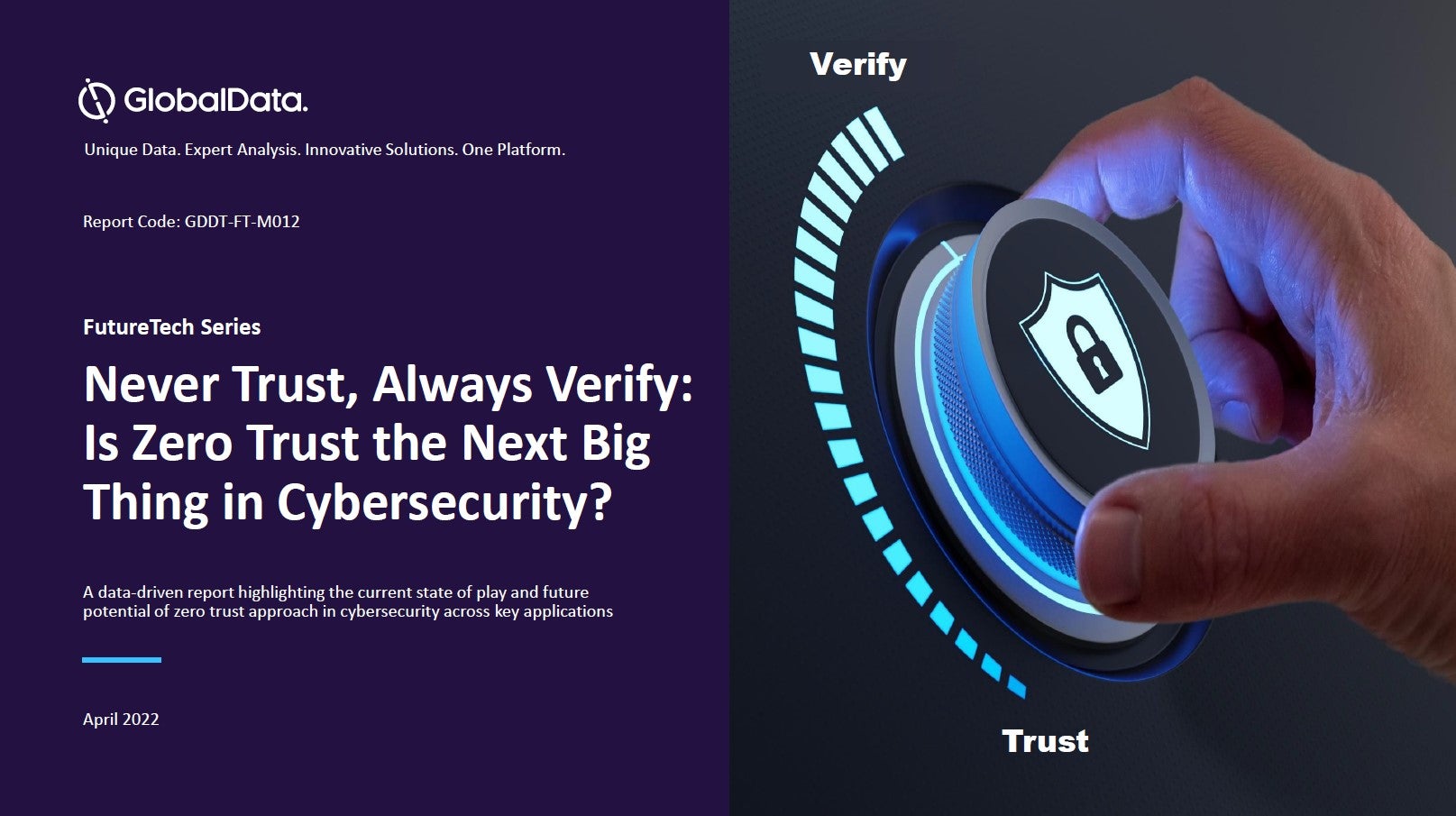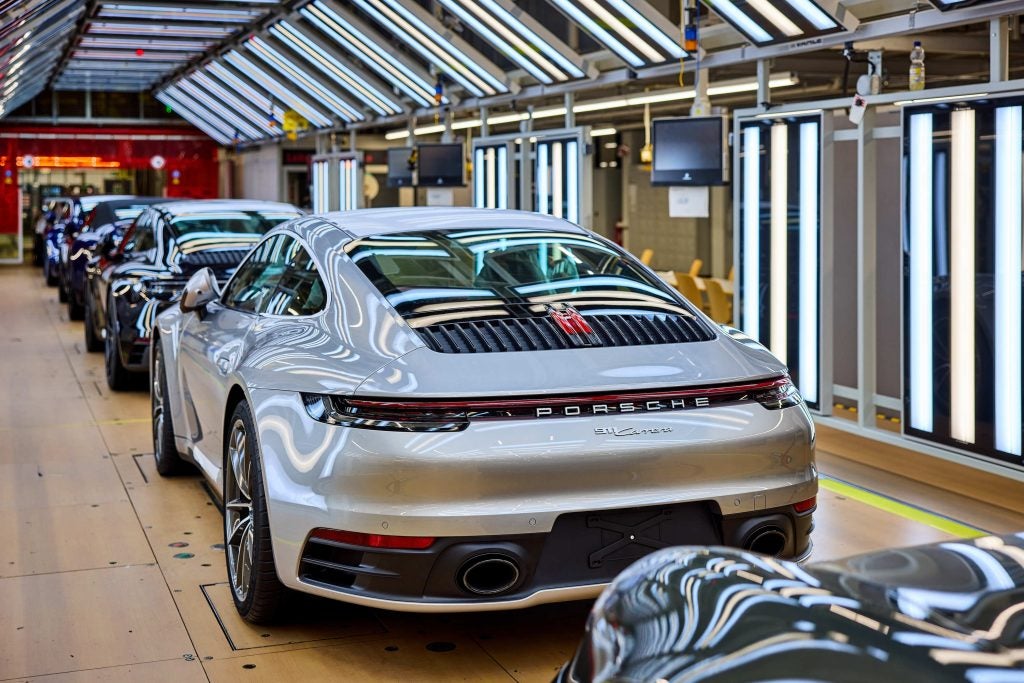
In this eighth guest article written exclusively for just-auto, Dato Madani Sahari, the CEO of Malaysia Automotive, Robotics and IoT Institute (MARii), reflects on our digital lifestyles, the data being generated and the increasing need for the smart integration of databases – alongside data protection – to get the best societal outcomes.
In the year 2001, the world saw the first series of "smartphones" that were connected to the internet – a time where Nokia was still a household name.
This means that many of today's graduates would have no living memory of the times when information could not be retrieved over the cloud; they will not remember a period when those in my generation would have to walk to a library in order to reach a book or encyclopedia.
How well do you really know your competitors?
Access the most comprehensive Company Profiles on the market, powered by GlobalData. Save hours of research. Gain competitive edge.

Thank you!
Your download email will arrive shortly
Not ready to buy yet? Download a free sample
We are confident about the unique quality of our Company Profiles. However, we want you to make the most beneficial decision for your business, so we offer a free sample that you can download by submitting the below form
By GlobalDataMankind has truly come a long way. Information is now literally at the tips of our fingers, and it takes a few clicks of a "button" to know more about any particular subject under the sun.
Today, digital technology has allowed the convergence of the integration of the digital lifestyle. Apple, for example, successfully closed this integration through a carefully curated series of products – from its Apple Watch, iPhone (or iPad), its desktop solutions and Apple Carplay – allowing for data driven living patterns that allow for its owners to track health activities, integrate work patterns, purchase goods and services, as well as enhance mobility lifestyles.
See Also:
These advances have been around for some time now, and if a significant portion of our youth are well versed with digital technologies, it is only a matter of time when the entire digital ecosystem needs to respond.
The buzz surrounding the connected car has seen significant momentum in the past few years, with new business thinking required to lead innovations to take the automotive business into the new era of the digital economy.
New processes are now developed to integrate the features in the new age of the connected vehicle – anticipating to the consumer that will eventually integrate their digital lifestyle with digital transportation.
Remote diagnostics and control functions, telematics, over-the-air (OTA) software, digital content, driving data, location tracking and many other features will be required in the vehicle to ensure its relevance to the businesses that will depend on them, not to mention the businesses that can benefit from the myriad services unlocked due to the connected features of vehicles.
Synonymous with the digital economy, these applications of data driven technologies will no longer reside within their isolated sectors, but eventually will need to integrate across the board within business and government databases to ensure a complete ecosystem is established – in particular, one that guarantees consumer rights and protection of the data it holds.
Synonymous with the digital economy, these applications of data driven technologies will no longer reside within their isolated sectors, but eventually will need to integrate across the board within business and government databases to ensure a complete ecosystem is established – in particular, one that guarantees consumer rights and protection of the data it holds.
This immense connectivity will transverse into the home, workplace and any activity in between – in the form of smart homes, smart schools and offices, as well as connected vehicles which will be linked through smart watches, smartphones, virtual assistants and other cloud-based application that tracks data through the personal and business daily cycles.
Such change not only requires infrastructural investments by businesses, governments and individuals at various levels, but requires and cultural and mindset change that data will be the new currency – it is something that we cannot isolate from, just like how the introduction of money eliminated the barter system.
The COVID-19 pandemic has created market awareness of data driven decision making, particularly in Malaysia. The emergence of applications such as MySejahtera, has expedited the capacities of health officials to track and isolate outbreaks of the virus through knowledge of those who have potentially come into close proximities with infected patients.
Through the COVID-19 Intelligent Management System (CIMS), co-developed by MARii and the Ministry of International Trade and Industry, businesses were able to instantly submit daily reports to the government on their compliance to standard operating procedures to operate during the movement control order (MCO) instituted by the government since February 2020.
While the daily figures of new infections were in the mid-200s in March, the months of June and July saw figures dropping significantly to low double digits, with data driven methods proving effective to identify new infection clusters to quickly prevent further spreading – allowing the economy to keep moving.
Putting all the above together, Senior Minister and Minister of International Trade and Industry, Dato' Seri Azmin Ali recently highlighted how crucial digitalisation is, and that the future proofing of businesses is key to drive productivity and connectivity among working peers, customers and business partners beyond geographical borders.
My personal opinion is that in order for successful digital markets to flourish, the democratisation of data must be discussed at consumer, business and government levels. The integration of data systems, personal data protection and security, as well cultural notions of data as a currency must be at the core of each phase and level of the economic value chain.
Through national frameworks such as the National Policy on Industry 4.0 (Industry4WRD), the National Automotive Policy 2020 (NAP 2020), National e-Commerce Roadmap, as well as national big data management, artificial intelligence, and cybersecurity frameworks – Malaysia is developing the entire value chain to implement best practices that caters to the data driven economy of tomorrow.
MARii is embarking on its own home-grown digitalisation network to integrate its various functions, programmes, events and workspaces to cater to the needs of Malaysian people and businesses in a single point in the cloud – making its virtual presence a synergized entity with its physical location in Cyberjaya, creating a sustainable digital workspace that flows into its physical gateway to the home of the multimedia super corridor.
The writer is the chief executive officer of Malaysia Automotive, Robotics and IoT Institute (MARii).





